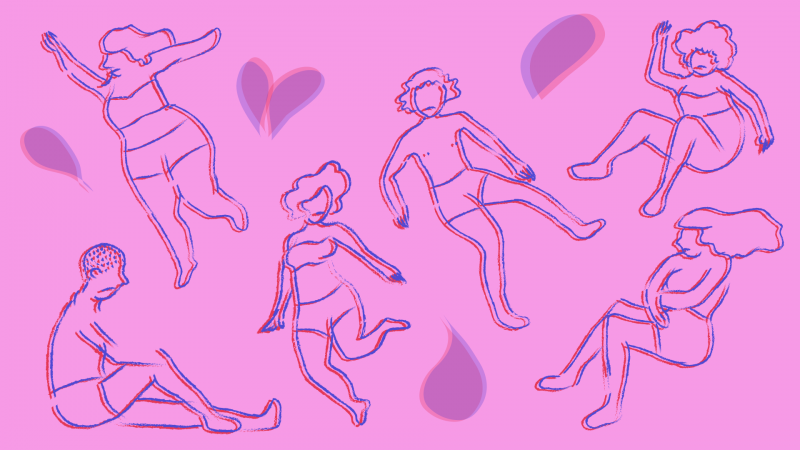A few weeks ago, at The Link’s launch party (no, there is no feud between our publications) BackxWash performed “You like my body the way it is” off her Deviancy album. In a moment that felt like I was in a movie — as if the camera was behind and panned to a POV of me watching BackxWash perform — I latched onto those lyrics and snapped into journalist mode. A story idea (this one) came alive.
BackxWash starts by saying she had a dream she would die and go to heaven, moving into the second verse with, “If he [Jesus] made me in his image/ It’s amazing how I hate seeing my face up in the mirror”. The rest of the song takes you through this sentiment; the feeling of inadequacy, the idea of wanting to change parts of yourself, either partly or completely. Then the chorus shines through: “you like my body the way it is” — you admire it and cherish it and love it just how it is, regardless of how much I don’t like about it or what I want to change.
There has been a growth in the body-positivity movement over the past few years, with everyone preaching that you should love yourself just the way you are. The thing with body-positivity is that it can take years for some to actually achieve a state of mind of full acceptance.
If someone has years of issues with their body image, just telling them “love yourself” or that there’s nothing wrong with them doesn’t do much. Sometimes, especially if someone has struggled with loving themselves for a long time, it takes more than simple affirming statements from a stranger over the Internet or kind words from your friends to really spark a change of mind.
BackxWash’s song is a reality check that these thoughts of inadequacy and of wanting to change parts of yourself are still on people’s minds, despite the body positivity movement trying to rid the world of negative thoughts people have about their bodies. Her song is also a soft reminder that having another person love the parts of you that you hate can help you learn to love those parts yourself.
There have been times where I didn’t like parts of my body, either because of the perfect body propaganda on social media and in advertising around me, or because of years of feeling inadequate and inferior to everyone else my age, or even because I was comparing myself to others. All of these added to my already not-so-great self-image. But between those times of self-doubt and of feeling inadequate, there have been people who were patient with me, who took the time to learn what I didn’t like about myself and made sure I knew they loved those parts of me. They made sure to tell me they liked my body the way it is, even if I couldn’t see it at first. And soon enough, because of these people, I started liking the parts of myself that I used to not like so much.
The point of this is that, sometimes, we all need a little help loving ourselves, to see ourselves in a new light and to not feel so alone. As BackxWash says: “But when I’m feeling so cold, you don’t get me a coat/ Your touch gives me the warmth, you don’t leave me alone.” While, no, we shouldn’t need to depend on someone’s validation and idolize their opinions about us, having others’ reaffirmations that they love the parts of you that you dislike can help you in loving yourself. By someone telling you they like your body just how it is – without objectifying you, of course – despite all the flaws you point out to them, you may also start liking your body the way it is.
Graphic by @sundaeghost
